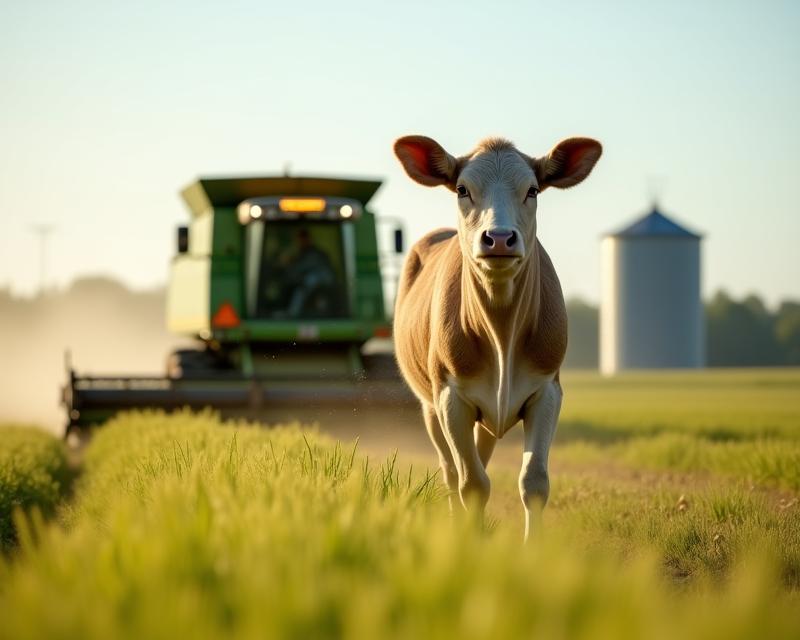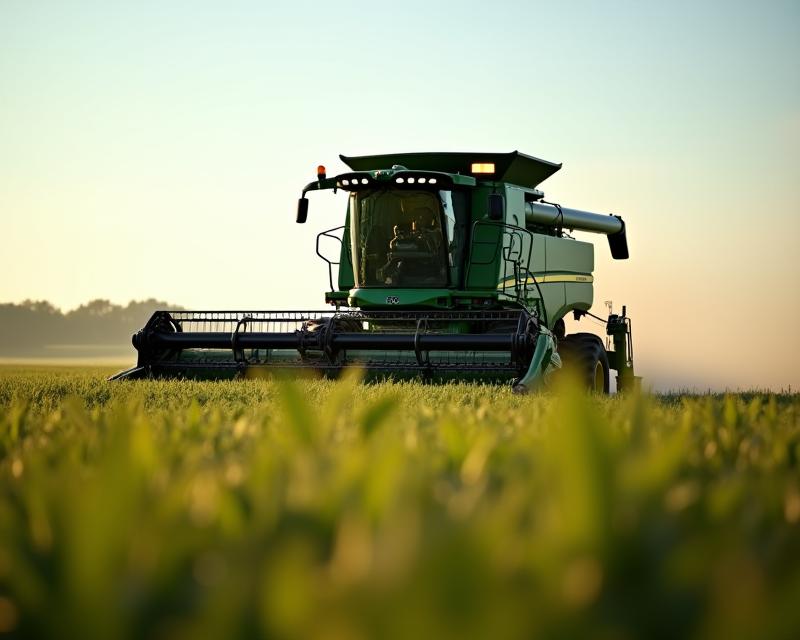Tractor Fuel Efficiency: Save $$ & the Planet!
Publish in Farm el 21/07/2025 20:07
Tractor Fuel Efficiency: Save $$ & the Planet!
Hey Farmers! Fuel costs are a major part of running a farm, and nobody likes watching that fuel gauge drop. But did you know there are simple things you can do to boost your tractor's fuel efficiency? It's good for your wallet *and* the environment – a win-win!

Simple Steps for Better Fuel Economy
Let's start with the basics. Regular maintenance is key! Make sure your tractor's engine is properly tuned up. This includes checking and replacing air filters, spark plugs, and fuel filters as needed. A clean air filter allows the engine to breathe easier, and a good fuel filter prevents contaminants from clogging the fuel system. Don't forget to check your tire pressure regularly. Underinflated tires create more rolling resistance, meaning your engine has to work harder to move the tractor. Aim for the tire pressure recommended in your tractor's owner's manual.
Driving Habits Matter
How you drive your tractor also makes a big difference. Avoid excessive idling – it burns fuel without actually doing any work. If you need to stop for a few minutes, it's often more efficient to shut the engine off. Also, try to maintain a steady speed. Rapid acceleration and braking waste fuel. Plan your routes to minimize unnecessary turns and distances. Consider using the appropriate gear for the task. Don't over-rev the engine; it’s not always faster!
Equipment & Technology
Modern technology can help too! Consider upgrading to fuel-efficient tires. Some tractors also have features like PTO (Power Take-Off) speed control, which allows you to adjust the speed of implements to match the task, reducing fuel consumption. And, of course, there are newer, more fuel-efficient tractor models available. While the initial investment might be higher, the long-term fuel savings can be significant. Finally, explore precision agriculture techniques. Using GPS and sensors to optimize fertilizer and water application can reduce the overall workload and fuel consumption.
Small changes can add up to big savings over time. By focusing on maintenance, driving habits, and considering available technology, you can significantly improve your tractor's fuel efficiency and keep more money in your pocket. Plus, you'll be doing your part to reduce your farm's environmental impact. Happy farming!
Pro Tip: Keep a fuel log to track your fuel consumption and identify areas where you can improve. This simple step can help you pinpoint inefficiencies and measure the effectiveness of your fuel-saving efforts.





